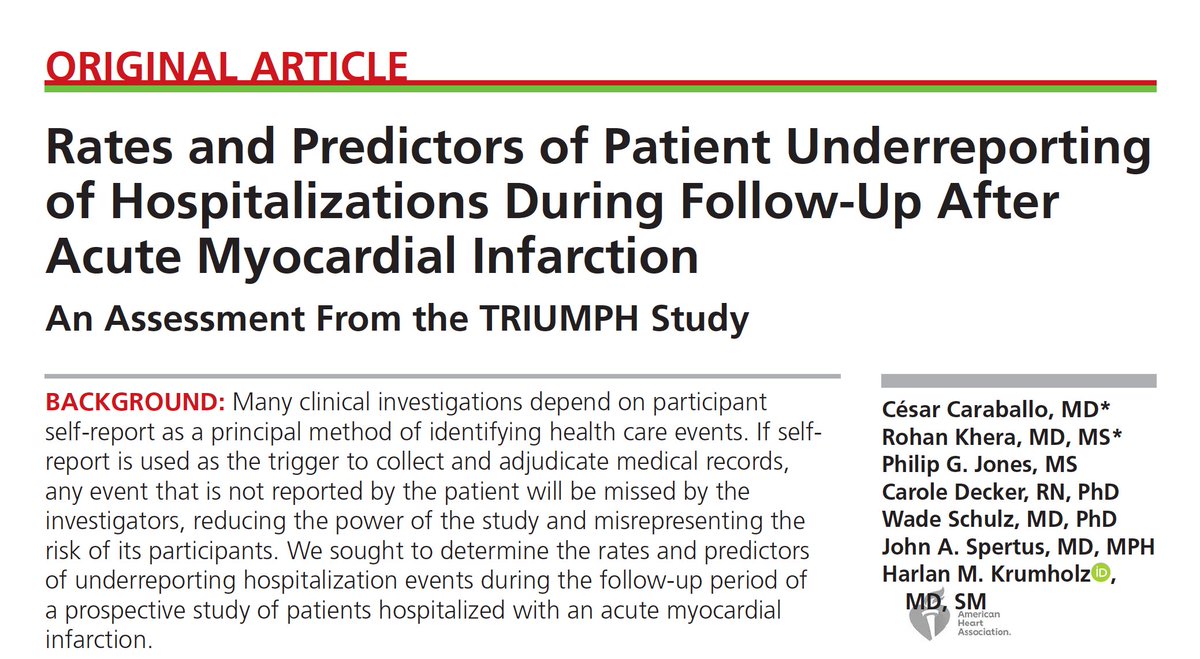Remarkable study w/implications on the under-reporting of hospitalizations by study participants that I was privilege to do w/ @CesarCaraballoC @rohan_khera @jspertus @wade_schulz PhilJones CaroleDecker @CircOutcomes https://www.ahajournals.org/eprint/FR7BZYYRYDVR9JJDKZPY/full?redirectUri=%2Fdoi%2F10.1161%2FCIRCOUTCOMES.119.006231 @YaleMed @YaleCardiology
Many studies depend on contacting study participants and asking about clinical events as a trigger to requesting medical records to confirm the event. Labor-intensive, expensive… and we found…often yields incorrect information.
In prospective studies, trials or observational, that depend on protocolized self-report to initiate ascertainment of events, over-reporting is not an issue because adjudication can screen out the false positives. It may waste time, but validity can be maintained. However… 3/
In studies that contact participants to begin the process of ascertaining clinical events, under-reporting can be a big problem, because you can’t correct for it unless you have other streams of data. And many studies have depended on participant reporting. 4/
In our study, we found: 'Self-reported hospitalization events after myocardial infarction are often in error, with nearly 1/3 not being reported.’ That is a huge amount of under-counting. In a trial that might not be bias, but it reduces power. In an obs study, it could bias. 5/
Moreover… ‘...while there are differences in rates of underreported events by patient characteristics or event type—across all subgroups the rates [of undercounting clinical events] are high, increasing progressively as time between time of event and the interview increased.'

 Read on Twitter
Read on Twitter


